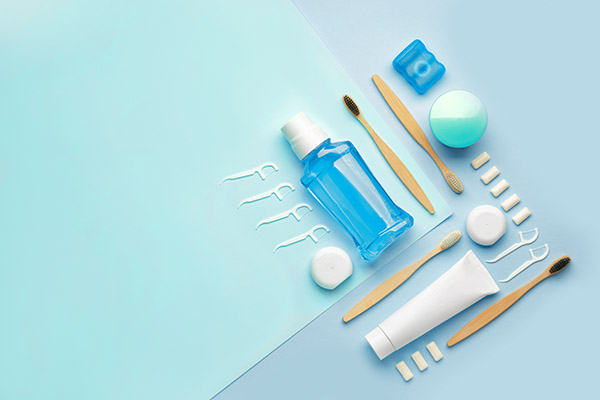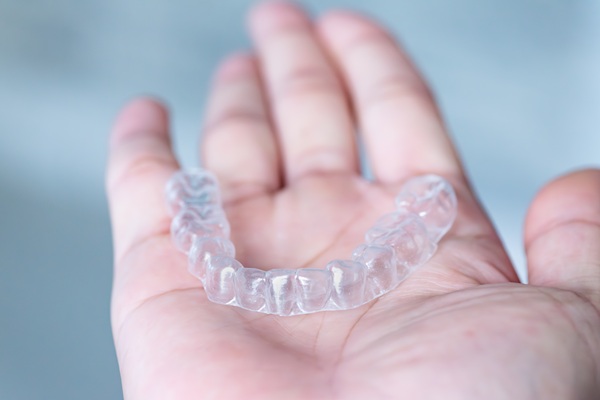 A healthy smile requires a lifetime of focusing on oral hygiene basics. Even if you currently have healthy teeth and history of proper dental care, a review of best practices is helpful to maintain good daily habits.
A healthy smile requires a lifetime of focusing on oral hygiene basics. Even if you currently have healthy teeth and history of proper dental care, a review of best practices is helpful to maintain good daily habits.
4 tips for a healthy smile
Focus on the details of these broad oral hygiene basics to ensure you retain your healthy, natural pearly whites for your entire lifetime.
1. Brush your teeth properly
You have most likely heard the recommendation to brush your teeth twice a day. Brushing before bed is particularly important to eliminate the germs that build up throughout the day. Your brushing technique is just as important as the frequency of brushing. Take your time, brush gently, focus equally on all surfaces of your teeth, and remember to brush your tongue, where plaque can build up. The correct products are important as well. Use fluoride toothpaste and a toothbrush that is appropriately sized for your mouth.
2. Do not neglect your gums
Flossing is just as important as brushing. Everyone knows that flossing removes pieces of food stuck between teeth, but its real value is in eliminating plaque, stimulating the gums, and reducing inflammation in the mouth. One good flossing session a day is sufficient for these benefits. If traditional floss is difficult, there are a number of alternatives to try, including pre-threaded floss, interdental brushes, water floss, dental picks, and soft picks. A fluoride mouthwash is a good supplement to your oral care routine. It can assist in killing bacteria, reduce the mouth's level of acid, clean hard-to-reach areas, and re-mineralize the teeth, but it should not be used as a replacement for brushing or flossing.
3. Eat and drink healthy foods
Your diet is an extremely important part of healthy oral hygiene basics. Follow these important recommendations:
- Drink water. Water is an excellent beverage to consume for overall health, including oral health. Drinking water directly after a meal help may eliminate the stickiness and acidity of foods that can damage your tooth enamel.
- Eat fresh produce. Crunchy fruits and vegetables are helpful for teeth not only for their vitamins and minerals but also because the chewing required stimulates saliva, which helps to clean away bacteria and food particles.
- Avoid sugary foods. Sugar converts into acid in your mouth, and the acid erodes tooth enamel. Highly acidic drinks, such as fruit juice, tea, and coffee, can also damage enamel.
4. Visit your dentist regularly
Even if you are extremely conscientious about brushing, flossing, and eating right, you still need that twice-annual dental visit. Your dental professionals will give your teeth a good cleaning using specialized equipment to remove hardened plaque. They will also provide a thorough examination of your oral health to spot potential problems and create a treatment plan with you as needed. Periodic x-rays will also show what lies beneath your gums to ensure there are no hidden problems.
Conclusion
By incorporating these tips into your regular routine, you will continue to experience good dental hygiene and ensure a healthy smile for years to come.
Request an appointment or call Lilburn Family Dentistry at 770-800-0178 for an appointment in our Lilburn office.
Recent Posts
Keeping up with oral hygiene basics can prevent cavities and other issues with your teeth. Proper daily care can also stop discoloration of the teeth and reduce bad breath. Here are some dental habits that people can benefit from including as part of a daily routine.One of the most important parts of oral hygiene is…
Brushing and flossing are essential oral hygiene basics that help prevent tooth decay and gum disease. While many people pay careful attention to their teeth and gums, the tongue is often neglected. However, this large surface of the mouth should also be cleaned on a daily basis. Doing so can help many people enjoy better…
Although many people believe that plaque and tartar are the same, they actually have significant differences. Understanding the distinctions between these two dental conditions can help you identify their warning signs and practice oral hygiene basics to avoid them.Plaque is a soft film containing millions of bacteria that build up on your teeth, gums, and…


